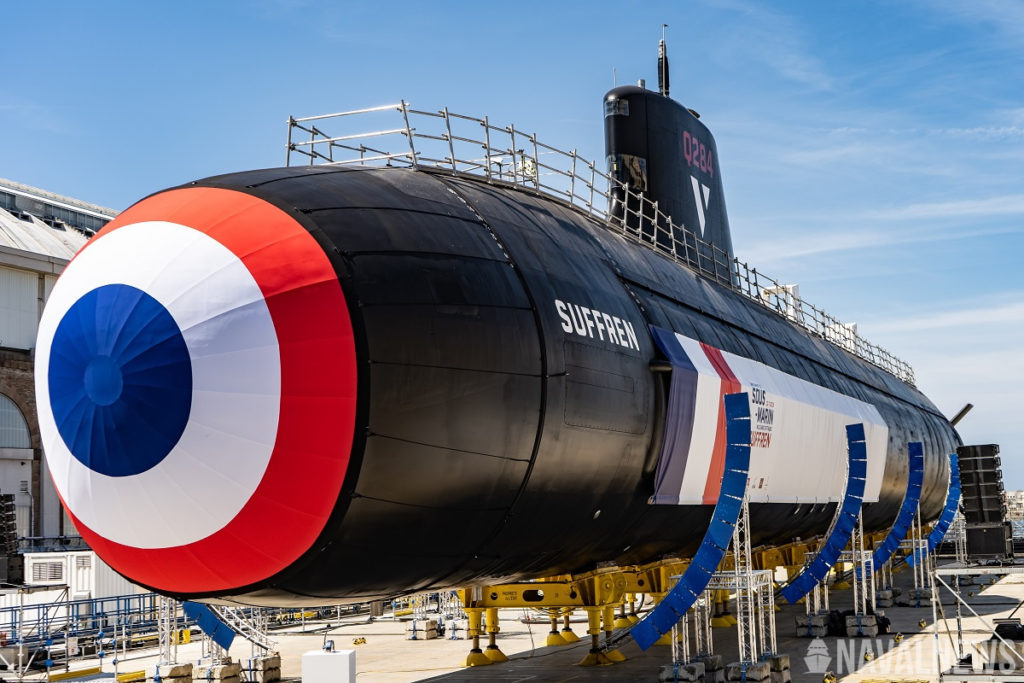International
How Macron wants to win European leadership by military means

The very recent speech by Macron at the Sorbonne slipped by quickly; instead, it should be read carefully. Perhaps it is the singular fate that befalls the most troubling things, especially in times of war. It seemed as though the French president was providing political support to Draghi’s program at La Hulpe, where the Italian lawmaker had declared his intention to lead the EU. It’s too bad that the more the European establishment tries to fix the EU’s globallist and somewhat insane system to keep it “competitive,” the more its contradictions get twisted.
There are several scholars and politicians who have followed the discourse well, however, such as Agustín Menendez, a jurist and professor of comparative public law and political philosophy at the Complutense University of Madrid, who drew some interesting conclusions.
First of all, Macron speaks of a “Europe that may die,” and so he does not distinguish between the European Union and Europe. Proceeding in this way may be justified in certain cases, but it is not acceptable when one wants to look good and pretends to talk about the history of the past 25 centuries. What is deadly is not Europe, which will continue to exist when its people have, very soon, died out. What is in danger of extinction is the EU.
Macron is simply recalling the existential dimension of the European crisis and thus discovering hot water. But he is missing a much more explicit analysis of what has gone wrong in the last forty years of European integration, and especially in the last ten. It must be remembered that he has had important responsibilities. Macron at the Sorbonne said many things, but he did not get to the heart of the matter.
The EU is unable to act effectively because its “economic constitution, which is not a true political constitution but of which an institutional structure and decision-making system are also part, makes it impossible to act at the European level and blocks the actions of member states. The creation of the EU is based on destroying the capacities of individual states. So it committed suicide at birth.
The EU was also born on the destruction of social policies. It fosters a continuous cycle of austerity that creates a minority of the ultra-rich to the detriment of the prosperity of others. Look at the Greek case: the “splendid” macroeconomic data of a country that has become the poorest of the 27, with the sole exception of Bulgaria, which is even more devastated.
These are the causes of the EU’s self-destruction, not others. Macron now seeks to re-value the EU by giving it a military purpose on the ground in Ukraine. In this, he has been brutally explicit. Leaving the door open to transforming the proxy war in Ukraine into frontal war, even though this would increase the risk of nuclear war, Macron has presented France’s candidacy as the hegemonic country of a new phase of European integration, made possible by the German crisis.

The “Force de Frappe”: The French Nuclear Submarine Suffren
A centrality based on the military industry
Macron aims at achieving French industrial supremacy through its own strong military industrial complex, much larger than that of Germany. The EU”s entry into the war would enable what otherwise seems impossible, namely the re-industrialization of France. Financed with the money of all Europeans.
It would have the role of ancient Athens in the Delian League thanks to its “force de frappe,” nuclear deterrence. But we are back to square one: only a minority of French people would benefit economically.
Macron then wants the ECB to cease to be the home of monetary austerity and acquire economic goals as well, linked to the myth of decarbonization. This goes against the German credo, which wants the ECB a copra in grandeur of the Bundesbank, another myth that, so far, has only casuated crisis and poverty outside Germany and France. In this regard, Macron is more realistic than the Germans, who follow the currency as a fetish.
But this requires policymaking because you cannot give conflicting goals to the Central Bank’s actions. This would be a real moment of policy synthesis, which, however, as long as German fetishes exist, will not be possible. Macron has an interest in deepening the German crisis to force Berlin to take note that there is a new reality, one in which France would like to dominate.






